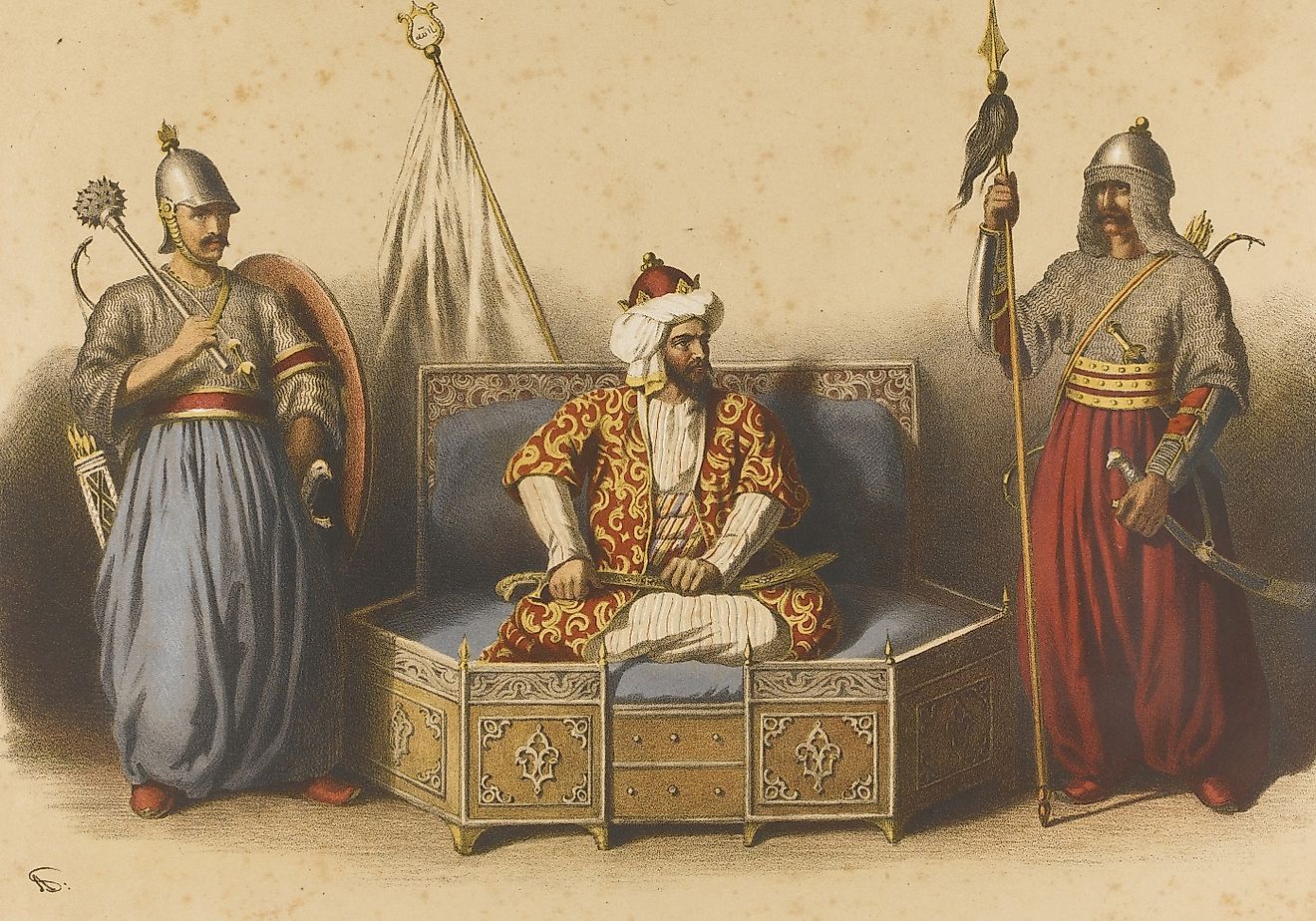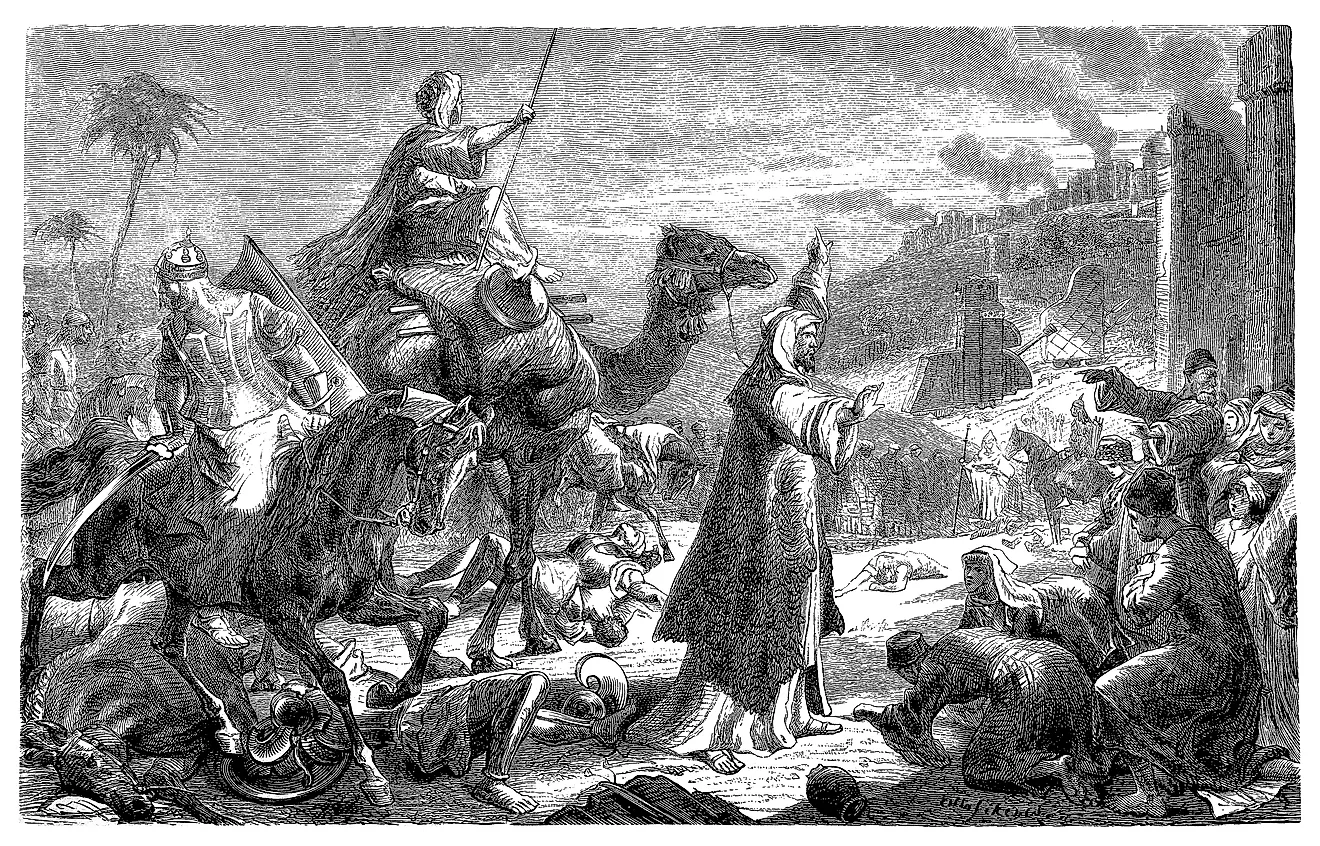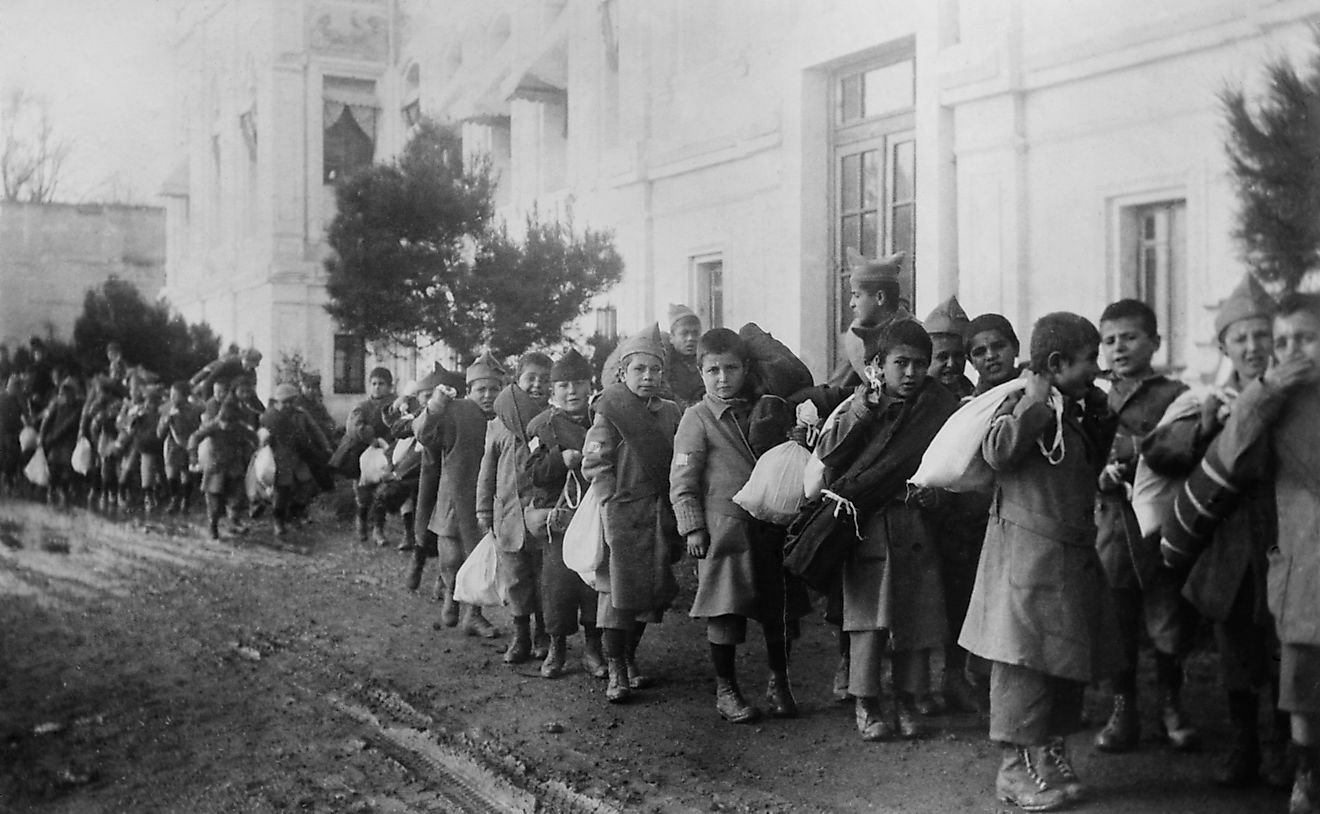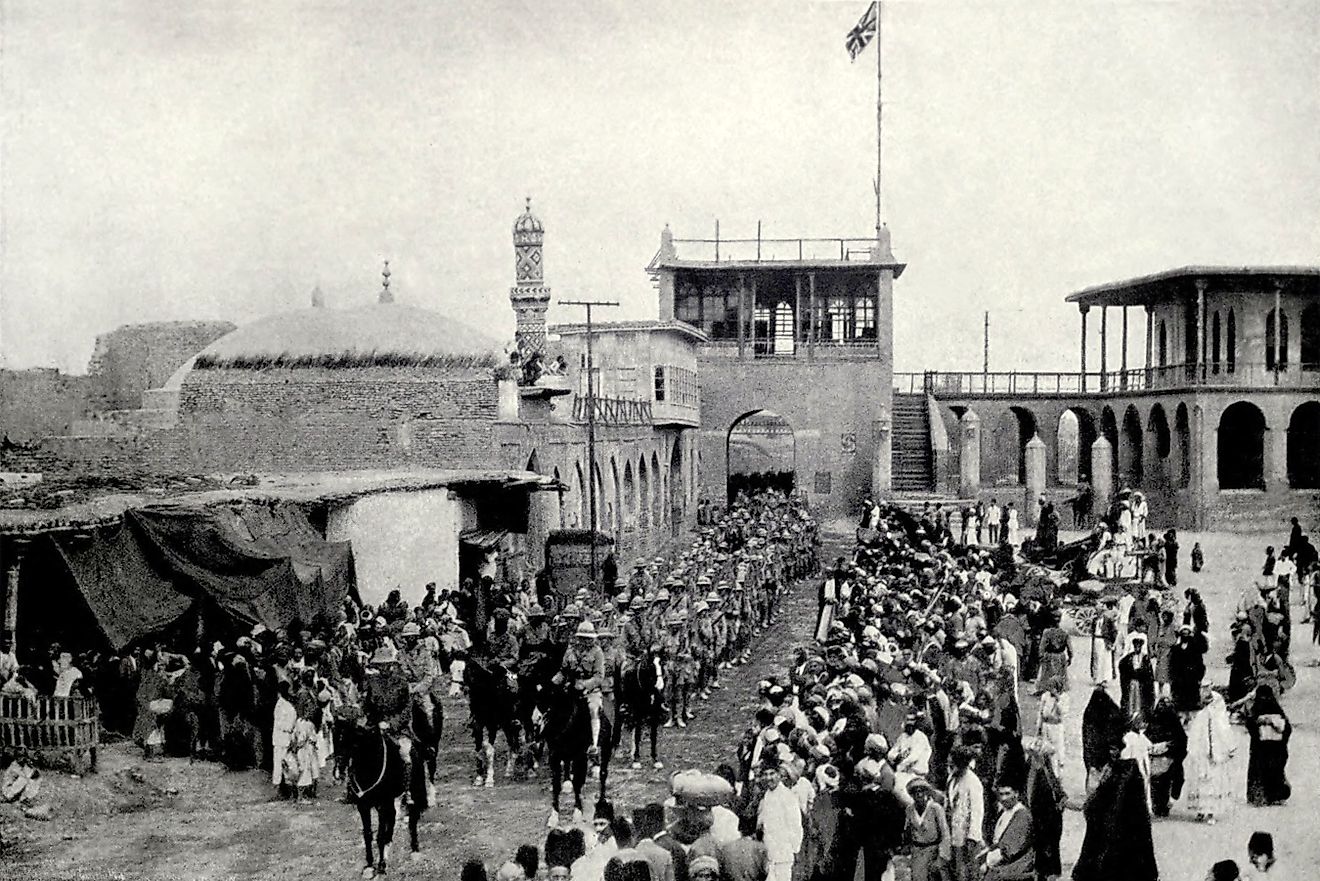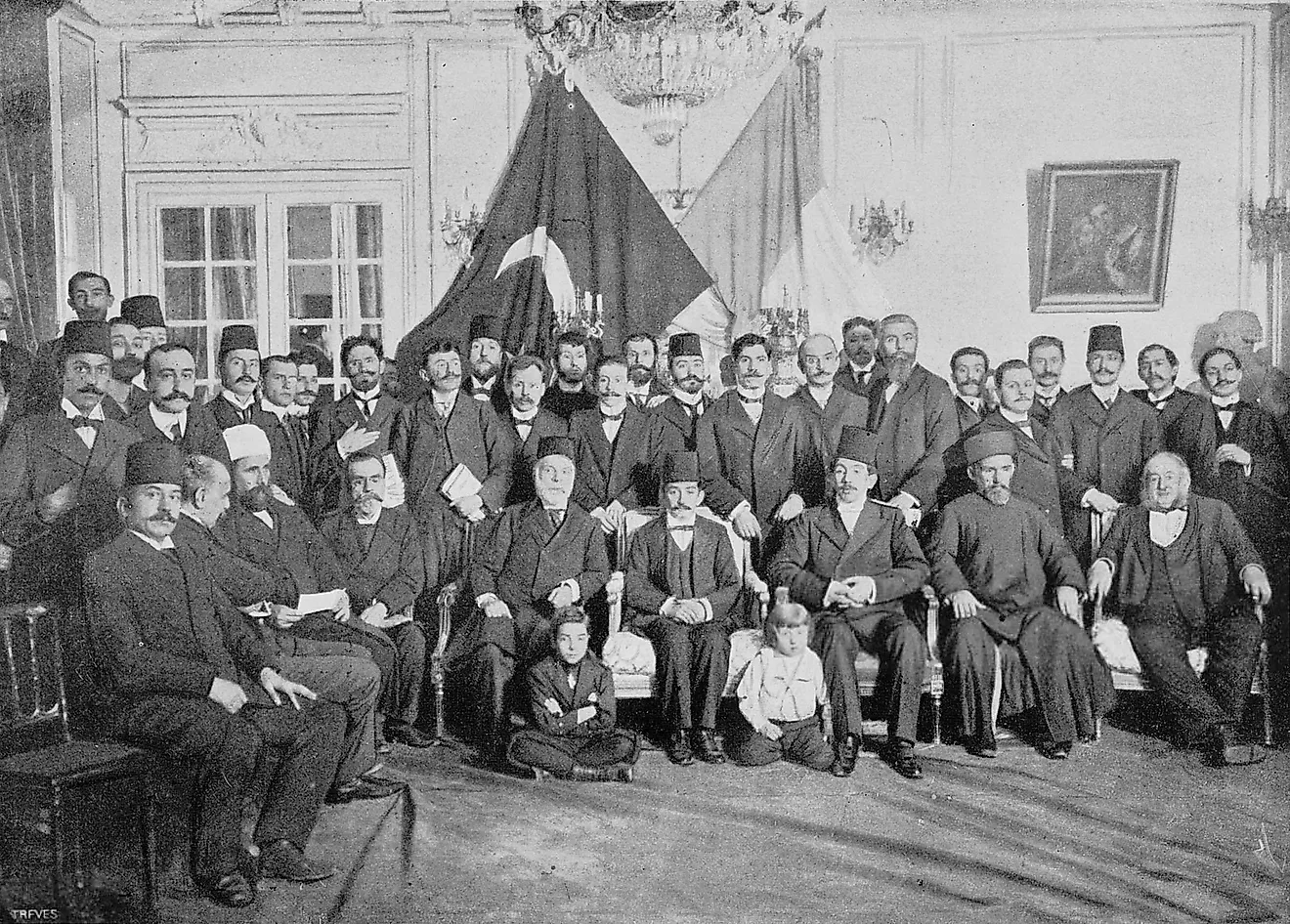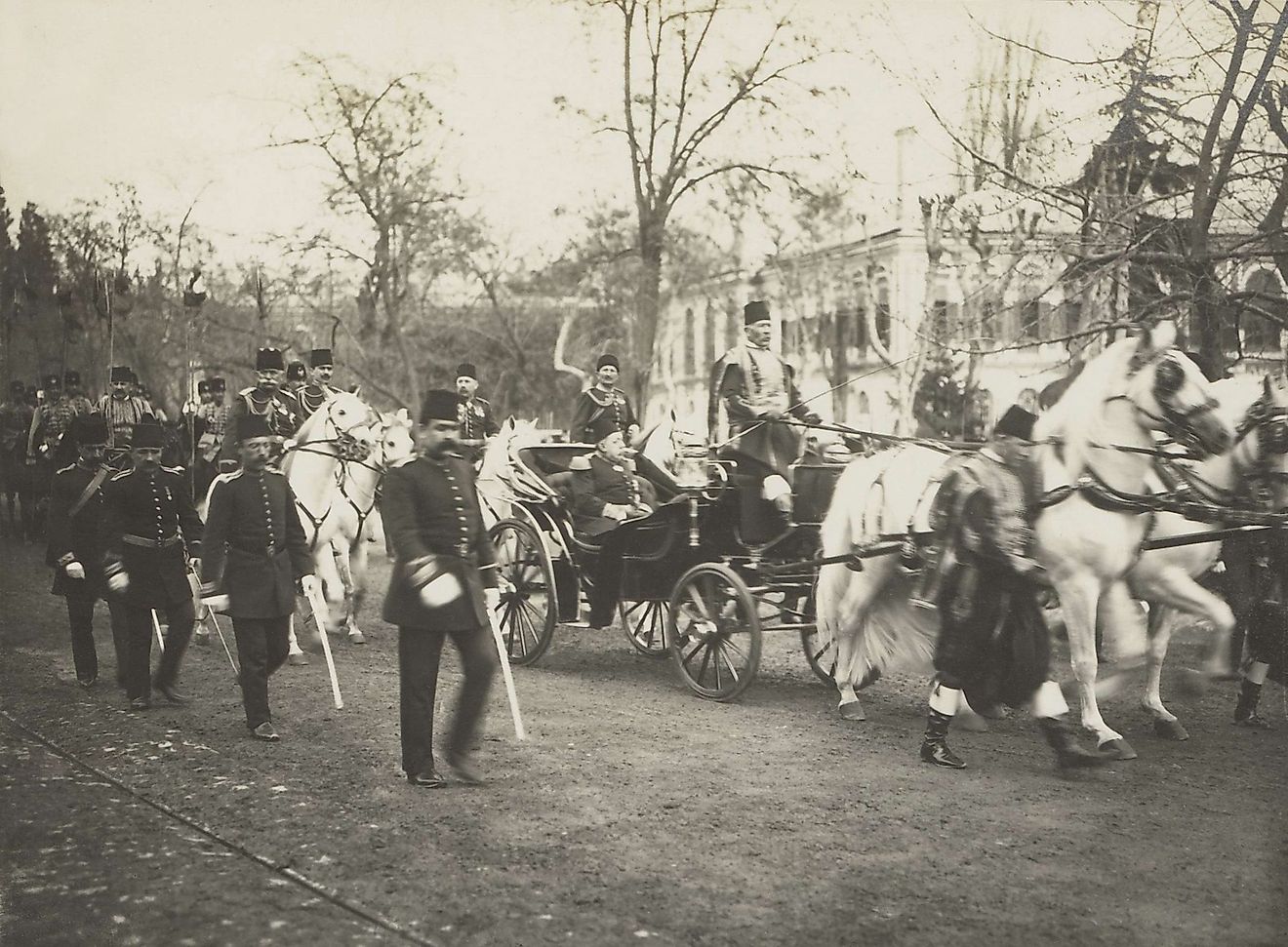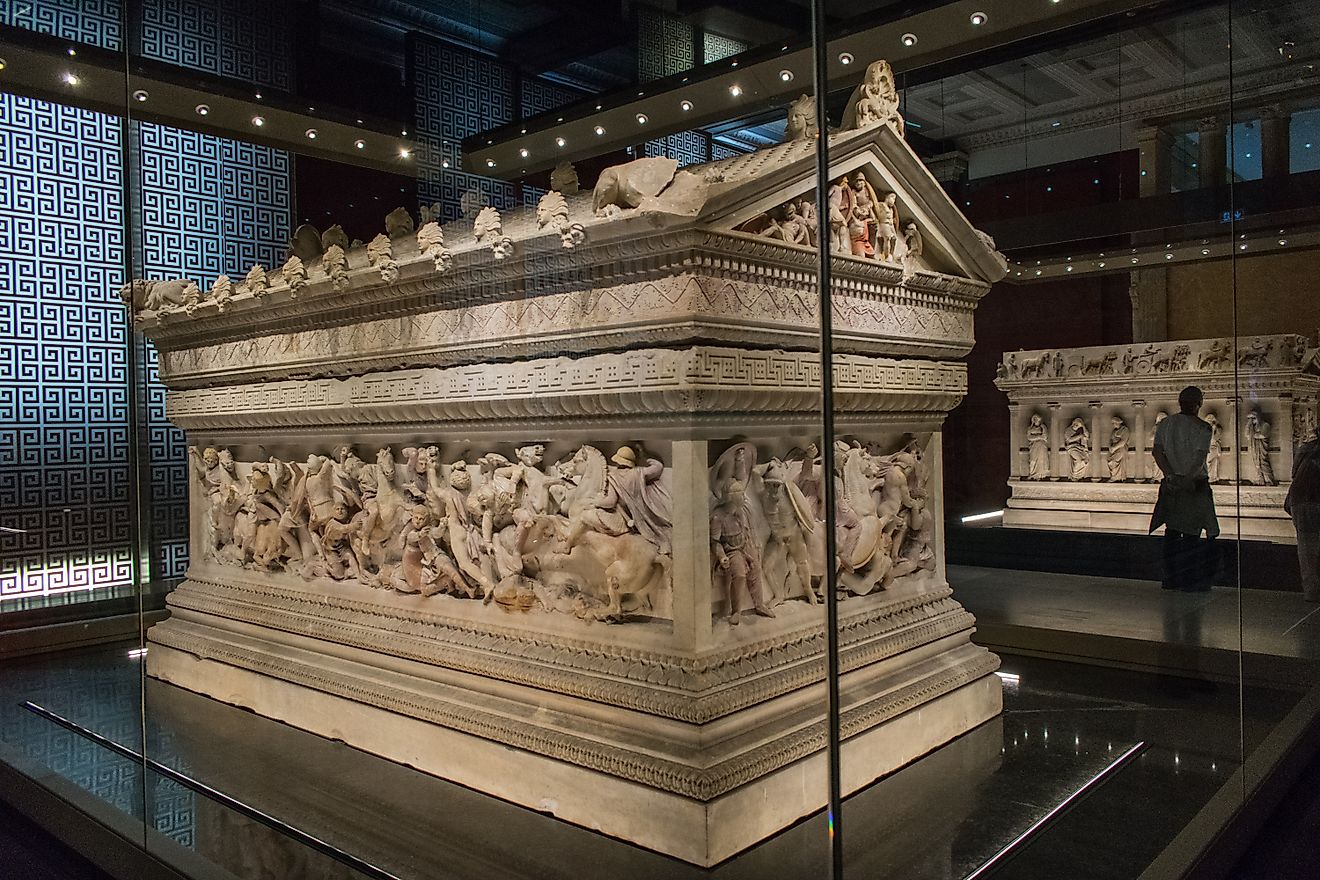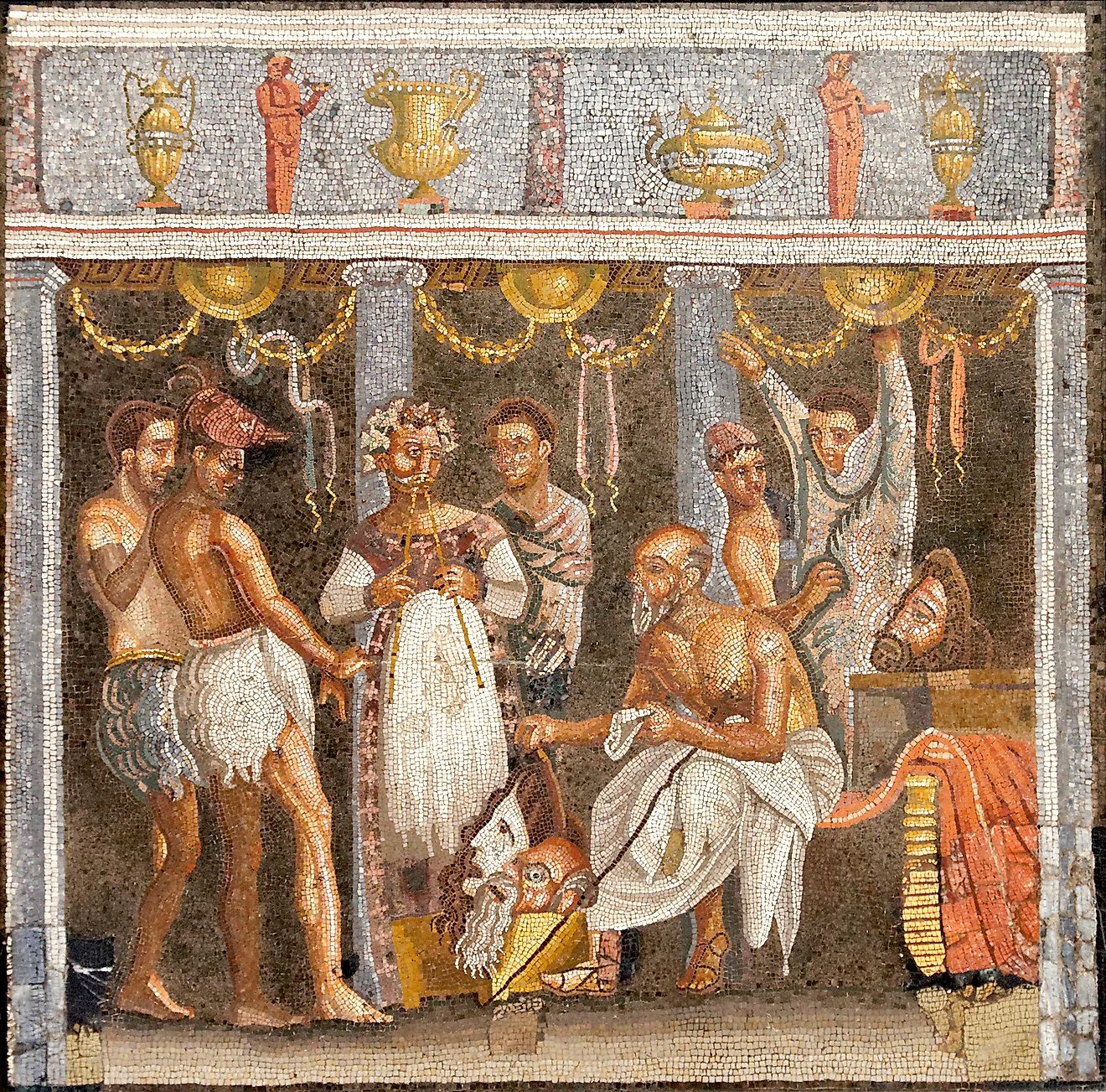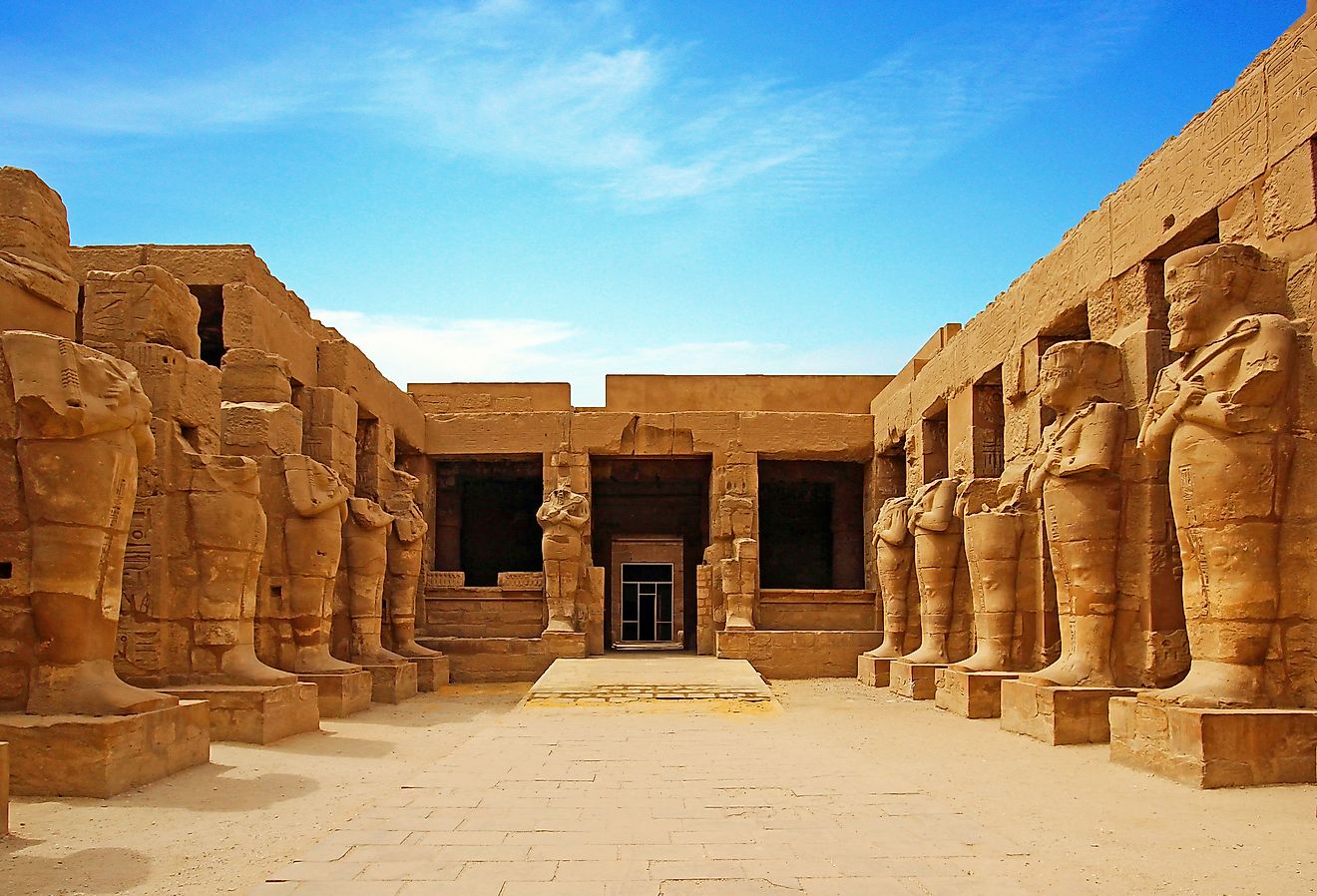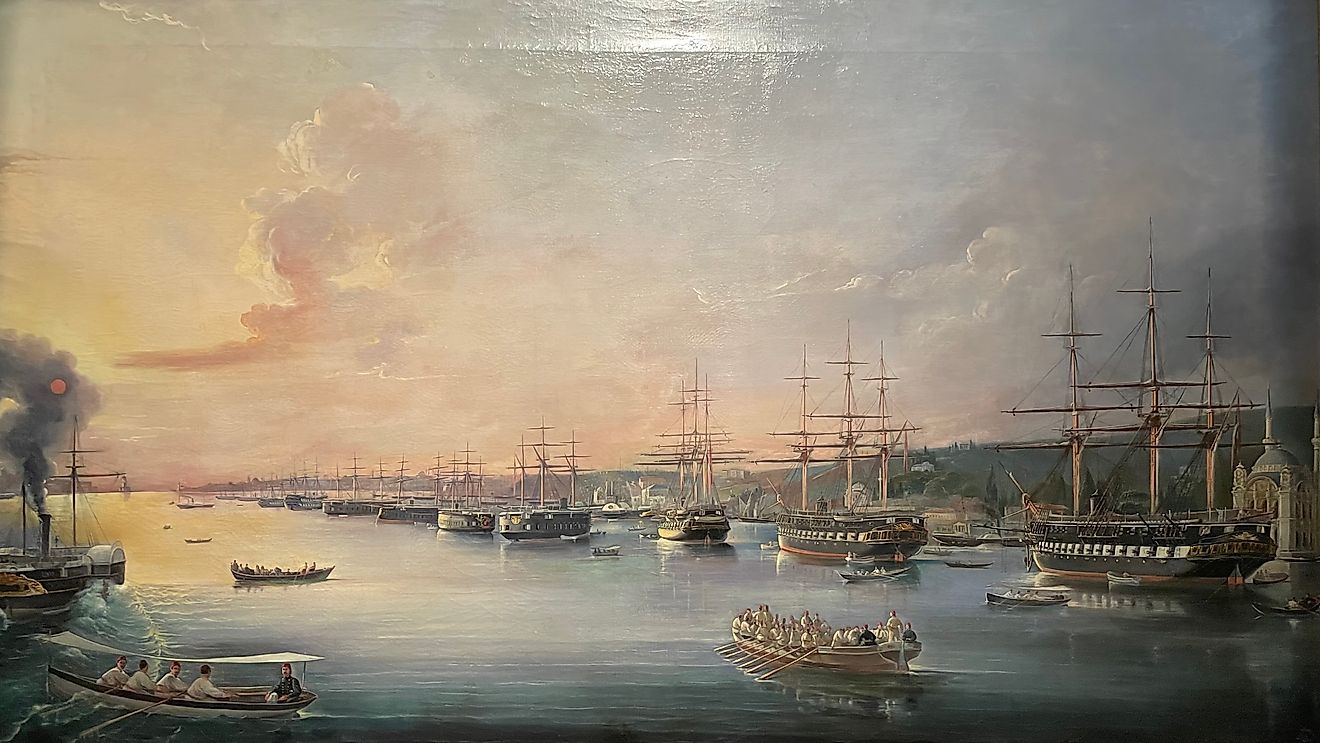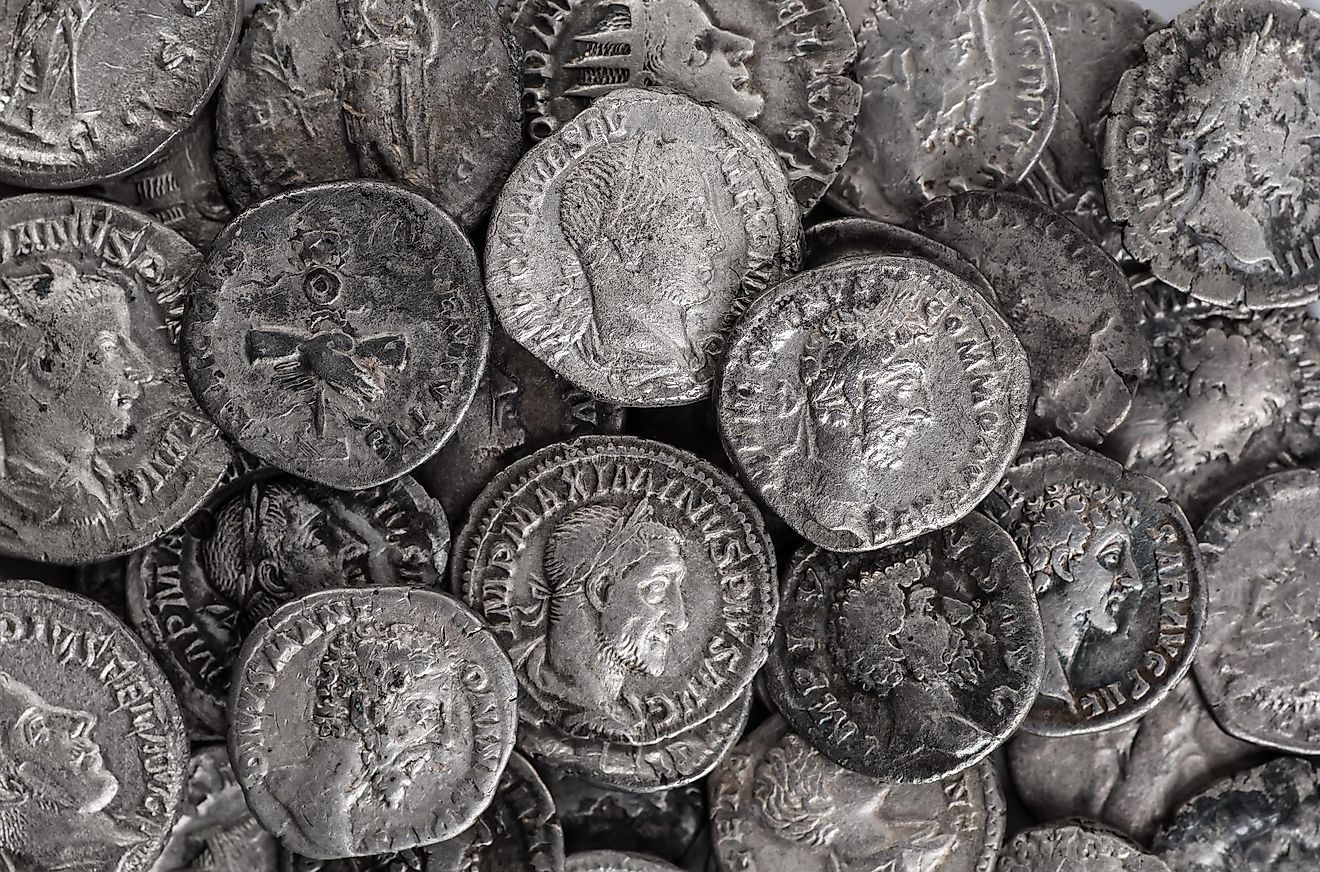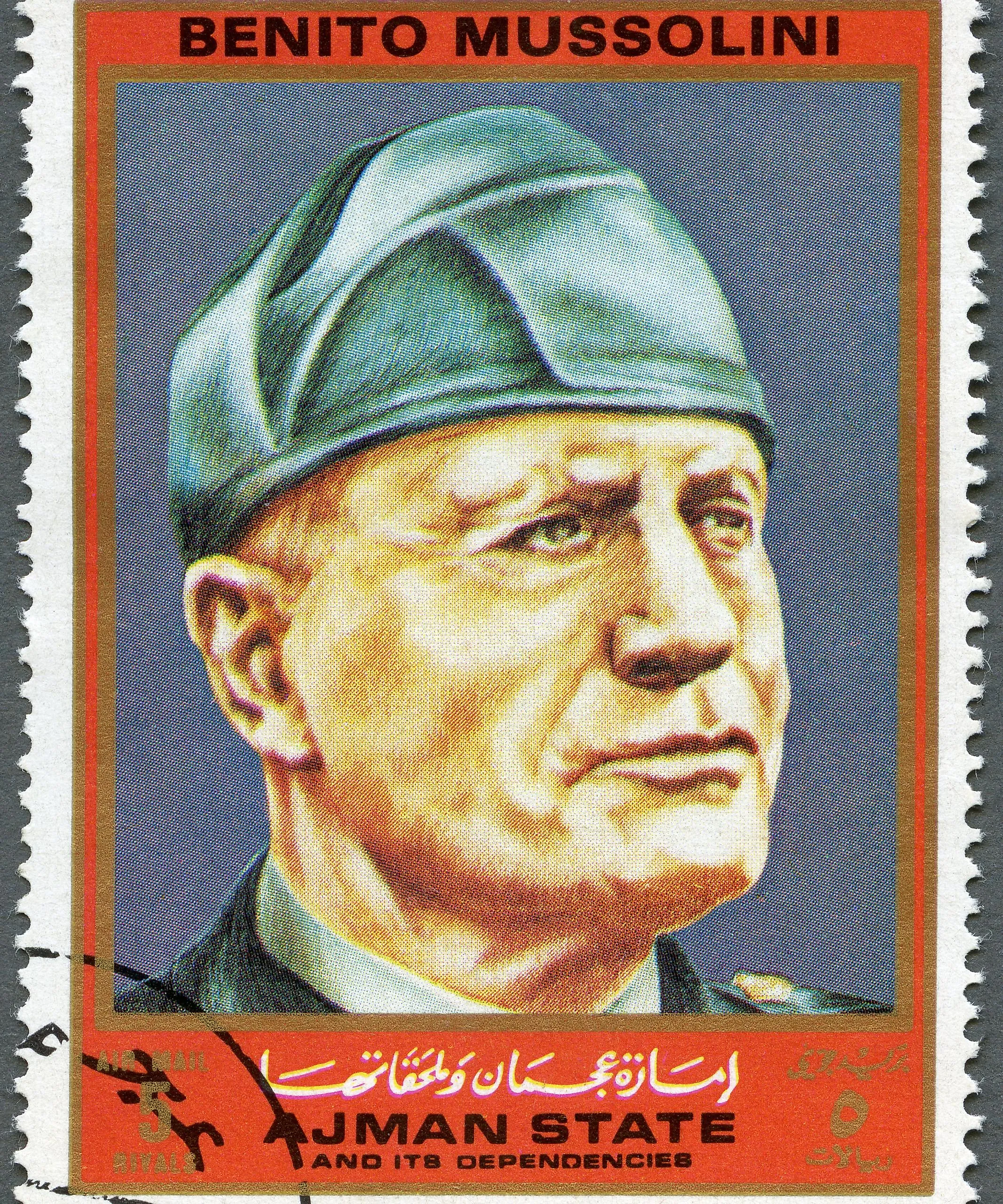
History's 9 Worst Leaders
Human history is not in short supply of terrible and wicked leaders. There is an almost endless number of kings, dictators, and even democratically elected heads of state leading their nations into absolute ruin due to their greed, bloodlust, or incompetence.
A "bad" leader does not always mean evil or dictatorial but can sometimes just be someone who was woefully unprepared for their responsibilities and duties at the time. Sometimes even good and decent leaders who had nothing but the best intentions end up causing more damage to their nation than any kind of external threat. It is these types of leaders who are usually glossed over in history books while the bloodthirsty dictators get all the attention.
Commodus (180 AD - 192 AD)
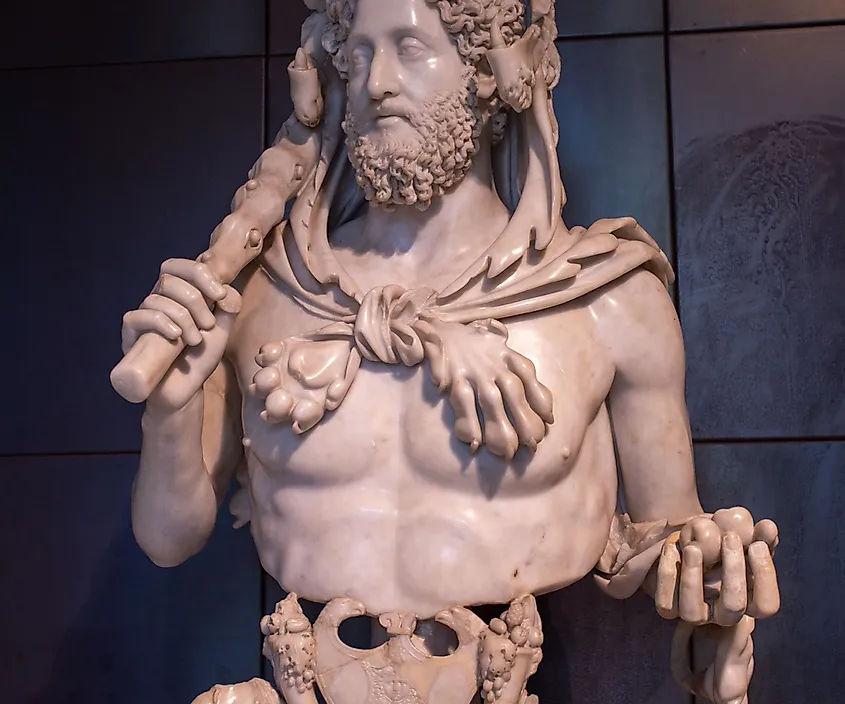
The Roman Empire has been responsible for producing some of the most decadent, immoral, and cruel rulers in human history. Even during the golden age of the early empire, the so-called Pax Romana (Roman Peace), the Roman state was plagued with the likes of Nero and Caligula. While both of those emperors were terrible, Commodus was so bad that his rule would spark an end to the Roman golden age and almost prematurely destroyed the Roman Empire.
Commodus was the son of the previous emperor Marcus Aurelius and had been groomed for the position his whole life. However, despite his father's best efforts, it would seem as though Commodus was destined for a life of selfishness and cruelty.
From a young age, he was justly hated by those around him for his inflated ego and lack of honor. The resentment held towards Commodus only grew when Marcus Aurelius suddenly died in 180 AD and his son came to power.
At no point throughout his twelve-year reign did Commodus show any concern for the well-being of the empire. He was much too concerned with holding lavish festivals, gladiatorial games, and extravagant parties for himself and the few friends he had in the Roman senate.
Commodus was exceptionally paranoid and routinely had members of his court executed for treason without the smallest shred of evidence. He also built up an obsession with becoming a gladiator himself. Something that was considered unbelievably low class for any decent Roman, let alone an emperor.
He would hold "fights" against other gladiators in a vain effort to prove his combat ability. These contests would of course be rigged in his favor. He never did kill any of his opponents but he was known to slice off the odd ear or nose depending on his mood. Commodus would often claim that he was undefeated in the arena and that there was not a man alive who could beat him.
After 12 years of utter disaster, the Roman Empire was on the verge of bankruptcy and facing an uptick in Barbarian raids that were becoming more intense and well-coordinated by the day. A group of Roman senators got together and planned to have him assassinated. In a final twist of irony, the group of conspirators paid Commodus's wrestling coach to strangle him in the bath.
After Commodus was killed the empire erupted in a near endless series of civil wars. This era of instability would reach its peak in what would be known as the Crisis of the 3rd Century. It was here the Roman Empire almost came undone and would have almost certainly done so if not for the Herculean effort of Aurelien. The western portion of the Roman Empire would have to wait another 200 years to officially collapse.
Woodrow Wilson (1913-1921)
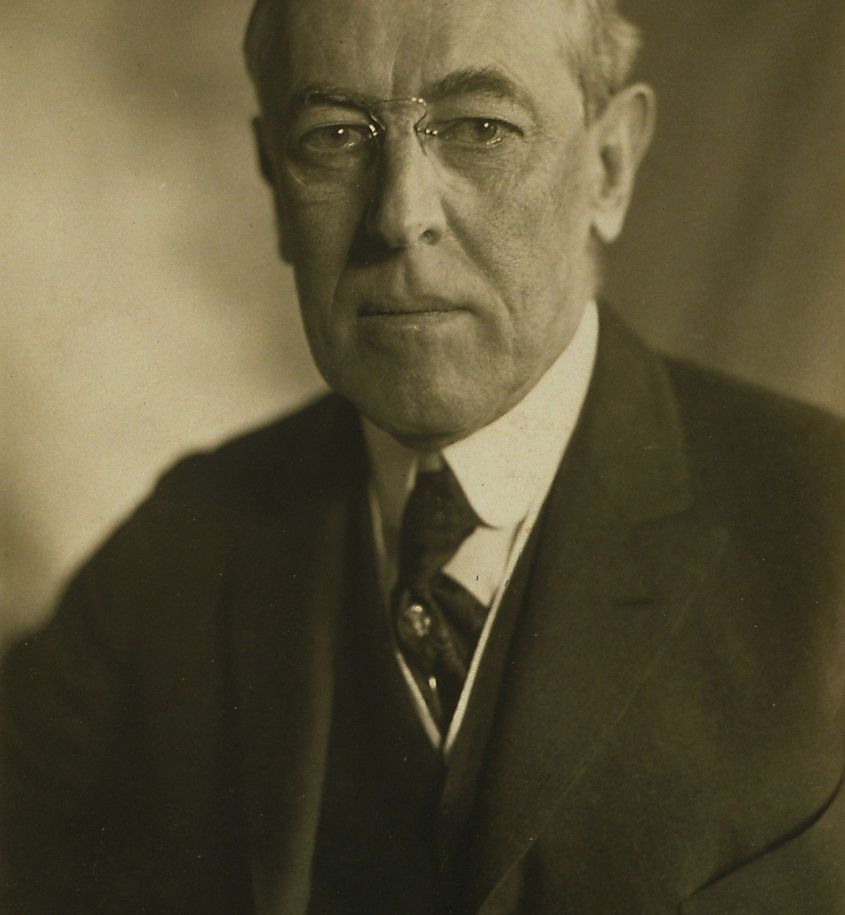
Woodrow Wilson today is an often forgotten or looked over the president in US history. He is often overlooked by the likes of JFK, Abraham Lincoln, and George Washington but in reality is probably one of the most important and impactful presidents the United States has ever had.
Wilson led the United States into the First World War in 1917 after running on a reelection campaign that promised neutrality. Despite the American war effort being brief, the United States found itself as one of the major players come peace talks in 1918 and 1919.
The Paris Peace Conference of 1919 would forge the modern world as we know it. Warts and all. While the Paris Peace Conference certainly had many positive aspects to it much of the decisions and attitudes that it birthed would be detrimental to many parts of the globe. Wilson was a firm believer that the United States had a particular duty and purpose to spread its values across the globe in a kind of "civilizing" effort.
It is not hard to draw parallels between this kind of attitude and European colonialism of the 19th century in places like Africa and the Middle East. Something that Wilson ironically chastised much of Europe for doing in the first place.
This kind of paternalistic and condescending outlook towards much of the developing world would lead to the justification of countless invasions and wars in future decades. Wilson had all but ended any kind of isolationism that existed within the United States and ushered in a new era of imperialism.
So-called Wilsonian foreign policy was felt hardest in Latin America. Wilson relentlessly mettled within the internal affairs of Mexico, Nicaragua, Haiti, and the Dominican Republic. This intervention would eventually manifest itself as a military invasion in every instance. Of course, each war was justified under the banner of trying to help the native population.
His domestic policies were not much better either. Wilson was openly racist towards African Americans and held views about race that were considered taboo even in his day. Wilson did his best to try and racially segregate the federal government and completely ignored the dire condition of African Americans living in the Jim Crow South.
Wilson would eventually lose reelection in 1921 but many of his attitudes and policies would live on. It is well argued by many historians that he was the one who set the tone for a new brand of imperialism that some might say is still present to this day.
Neville Chamerlain (1937-1940)
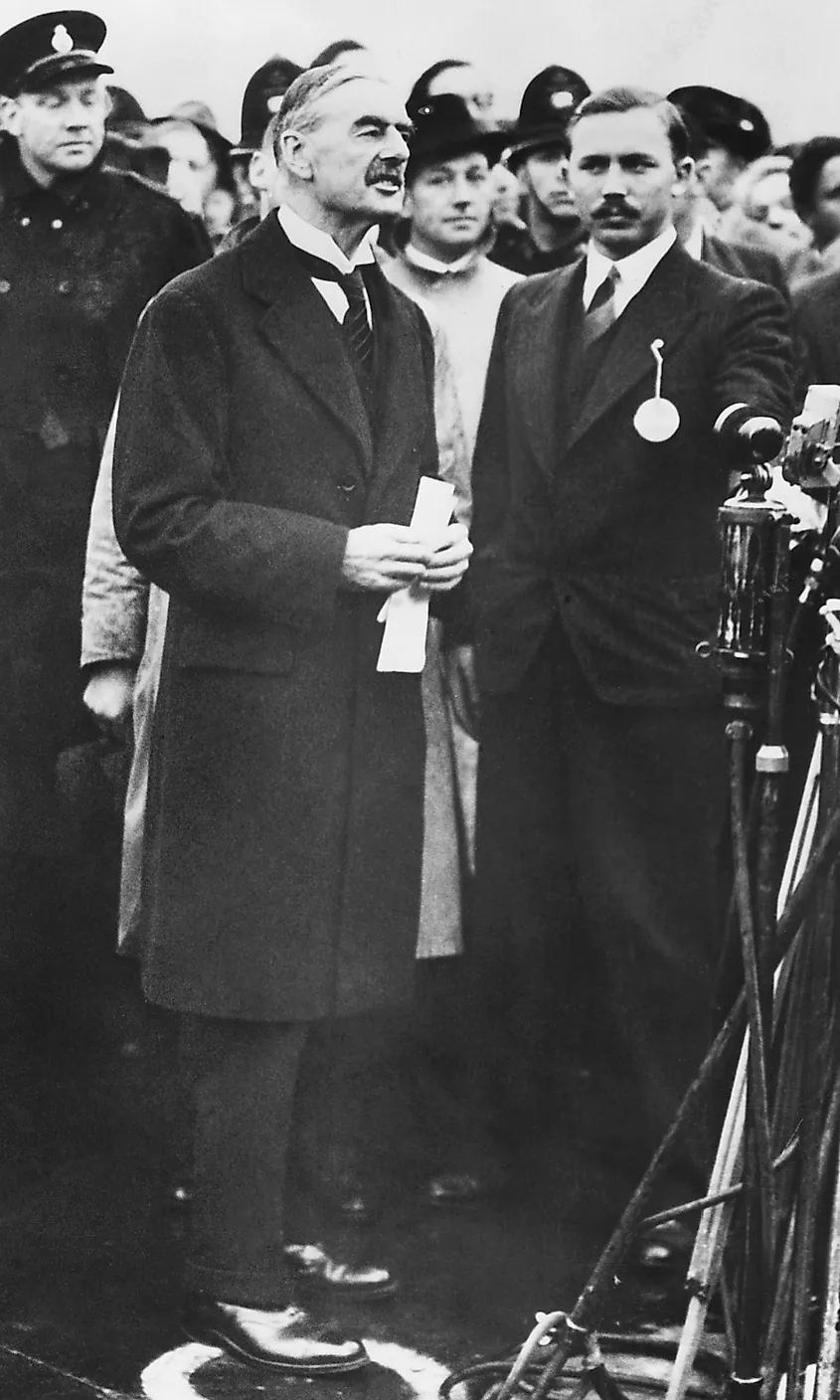
Neville Chamberlain was the prime minister of Great Britain from 1937-1940 and is largely associated with the policy of appeasement towards Adolf Hitler and Nazi Germany.
Chamberlain is often unfairly attacked in modern media as someone who oversaw the rise of Hitler in the 1930s and did nothing to stop it. It should be made clear that by the time Chamberlain was in power in 1937, Hitler and the Nazi regime had been comfortably in power for nearly 5 years. However, many historians claim it was his lack of action and astonishing naivety or even cowardice that encouraged Hitler to continue to make strides toward conquest and war.
Under no other British government did Hitler act so brazenly then he did with Chamberlain. While Chamberlain was powerless to stop the militarization of the Rhineland in 1936, the same could not be said about the annexation of Austria in 1938. Something that was strictly forbidden according to the Treaty of Versailles.
This blatant disregard for international law was met with a mild scolding from the British government but nothing else. With such a tepid response Hitler was only emboldened further.
Later late year Hitler invaded a part of Czechoslovakia with large German populations known as the Sudatenland. This sparked more outrage from the international community and the Munich Conference was held to determine what should be done.
Chamberlain and his allies had secured a promise from Hitler that he would go no further into Czechoslovakia. When Chamberlain arrived back in Britain later that year he held the treaty in his hand and declared that he had ensured "peace for our time." However, only a few weeks later Hitler disregarded the treaty and invaded the rest of the nation anyway. Many historians have called Chamberlain naive to the point of idiocy for thinking that Hitler was ever going to keep his word.
In Chamberlain's defense, he did significantly increase British military spending in the years leading up to 1939 and did eventually declare war on Nazi Germany once they invaded Poland. But there are a healthy amount of historians who strongly believe that if Britain had threatened war early the entire Second World War could have been avoided. While we will never know for sure, it is clear that Chamberlain's policy of trying to appease Adolf Hitler was a catastrophic failure that ultimately resulted in one of the most destructive events in human history.
Emperor Hirohito (1926 - 1989)
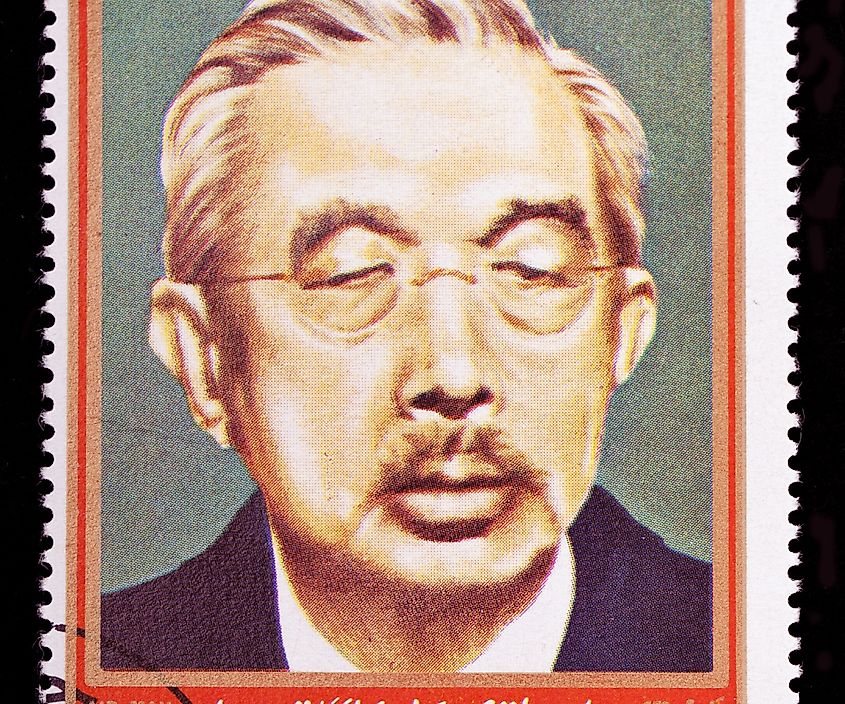
While it is still hotly debated by historians how much power, influence, or knowledge Emperor Hirohito had at the time of Japanese expansion into East Asia and its involvement in the Second World War, there can be no arguing that Hirohito overlooked one of Japan's darkest periods of its long and storied history.
Indifference and indecisiveness would be two of the defining points of his reign over Japan. By the early 1930s, an aggressive wing of the Japanese military had all but taken control of the nation. Something that Hirohito seemed almost oblivious toward.
Some historians make the bold statement that Hirohito held much more power than was initially believed. While some state he was nothing more than a powerless figurehead of Japanese culture and tradition. It is most likely that the truth lies in the middle.
Unquestionably, Hirohito wielded a considerable amount of political power. It cannot be understated how important the emperor was in Japanese society at the time. The emperor was thought to be a divine being that was destined to rule over the nation. His input was taken very seriously.
However, here lies the main issue with his rule during these crucial years between 1930-1945. He did almost nothing to stop or even mitigate the bloodthirsty rampage that the Japanese Empire inflicted on its neighbors.
By almost all accounts Hirohito was incredibly malleable and easily manipulated by those around him. This was particularly true when came to the new group of expansionist military leaders and politicians in the 1930s.
It is by no means his fault for being fed misinformation and half-truths about what was happening on the ground but he cannot be thought innocent for not being perceptive enough to realize what was going on in places like China and the Philippines.
Robert Mugabe (1980-2017)
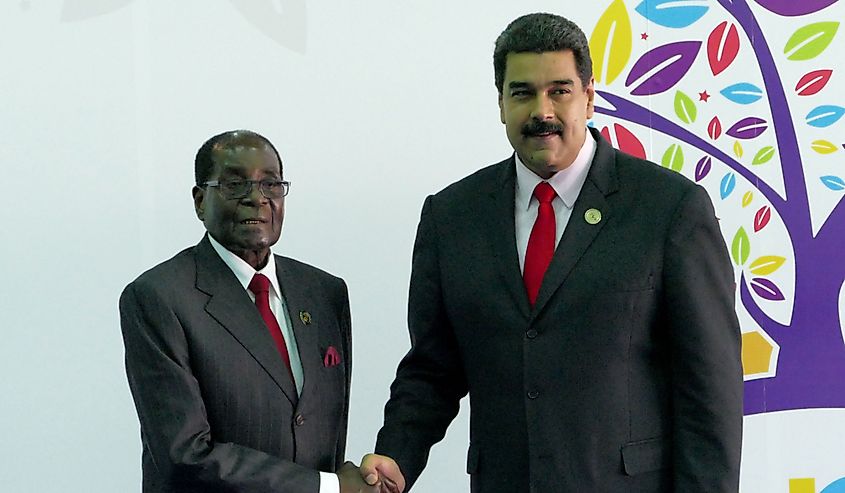
Depending on who you ask, Robert Mugabe's early career in politics was spent conducting a guerilla war against the apartheid government of Rhodesia (now Zimbabwe). Mugabe was a senior leader of the communist Chinese-backed group called the Zimbabwe African National Union (ZANU).
The war was long and bloody but after nearly a decade of fighting, and a mountain of international pressure on the white minority government, the black Africans within Zimbabwe would be allowed to take part in national elections for the first time. In 1980 a British-supervised election saw Mugabe and his ZANU-PF party win in a landslide. Many people within Zimbabwe were enthusiastic about this new and exciting government. Sadly, these dreams would be crushed early on in Mugabe's rule as he showed himself to be just another corrupt and violent despot only interested in preserving his power and wealth.
Almost as soon as Mugabe took power, the standard of living began to decline drastically. Access to education and healthcare took an immediate dive. Even access to clean food and drinking water became a struggle.
In 1987 Mugabe declared himself the first-ever executive president. This made Zimbabwe essentially a one-party state in all but name. There were plenty of elections held between 1987 and 2017 but all of them were plagued with accusations of Mugabe using violence and political pressure to rig elections and intimidate would-be opponents from running against him.
Aside from the endless examples of political violence at the hand of Mugabe, perhaps his biggest failure had to do with his handling of the economy. By the early 2000s, Zimbabwe's once thriving agricultural sector of the 1970s was on life support. A series of droughts and decades-long mismanagement by inexperienced and corrupt officials led to massive food shortages.
By 2008 the nation's economy was in total freefall with inflation reaching an unheard of 100,000%. Mass unemployment destroyed what was left of the middle class and thousands of Zimbabweans fled for greener pastures in neighboring countries.
Mugabe would remain in power until 2017. After more than nearly 40 years of rule, at the age of 93 Mugabe stepped down from power. He would live for another two years until he died in Singapore of old age.
Benito Mussolini (1922-1945)
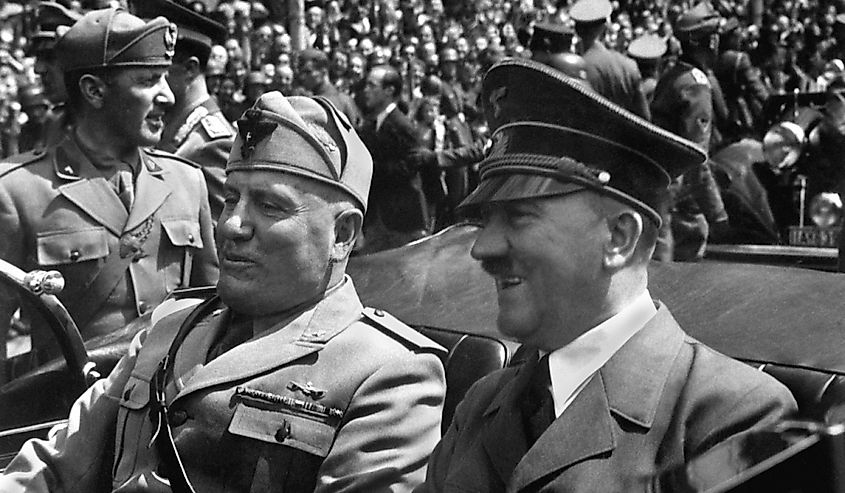
Usually recognized as the comically inept and hopeless useless third member of the Axis powers of the Second World War, Benito Mussolini's legacy goes much deeper than just serving as comic relief during one of the darkest moments in human history.
Mussolini is rightfully credited with inventing the fascist political ideology in the aftermath of the First World War. In the turmoil and chaos in the years following the conflict, Mussolini was able to form a large enough following to create the first National Fascist Party. Mussolini insisted during his impassioned speeches that only a dictator would be able to lead Itlay through such a tumultuous and uncertain time.
Mussolini's party was famous for its squads of thugs and bandits that would roam the Italian countryside and either attack, harass, or even kill socialists and communists. These groups of what would later be known as Blackshirts would serve as an invaluable part in Mussolini's gaining power.
By 1922, after a large group of Blackshirts brutally crushed a mass strike in Naples, Mussolini decided to embark on his famous March on Rome with roughly 40,000 Blackshirts behind him. With much of the nation unofficially under fascist control the government was powerless to stop them. In October of that year, Victor Emmanuel III made Mussolini the prime minister of Italy.
After a brief but fraudulent election in 1924 Mussolini had cemented himself as ruler for life. Free speech was crushed and a robust secret police agency was established. This new police organization was responsible for stamping out any kind of decent against the new government. Citizens were routinely hauled off and beaten, tortured, or killed for speaking out.
In 1935 Mussolini invaded Ethiopia, one of the last independent nations in Africa. This war was justified to avenge a series of humiliating military defeats Italy had suffered there during the later years of the Scramble for Africa. The Ethiopians would put up a valiant defense but would ultimately fall in an endless wave of ariel bombings and gas attacks.
Despite his success in Ethiopia, Italy's contribution to WWII 4 years later would be nothing short of a disaster in comparison. Italy did not have the organization or industrial might to wage war on a large scale with other European powers. However, this did not stop Mussolini from jumping into conflict headfirst.
Underequipt, poorly trained, and led by a group of incompetent yet loyal generals to Mussolini., the Italian involvement in WWII was marred with endless disasters and blunders. It was only when Italian troops were under the command of German leadership did they excel.
Mussolini would not live to see the end of the war that he recklessly forced his people into. In 1945 as he and his wife were fleeing to a safe house in the countryside, he was caught and executed by communist and socialist resistance fighters. A humiliating end to the person who once thought they would reunite the Roman Empire.
Tsar Nicholas II (1898-1917)
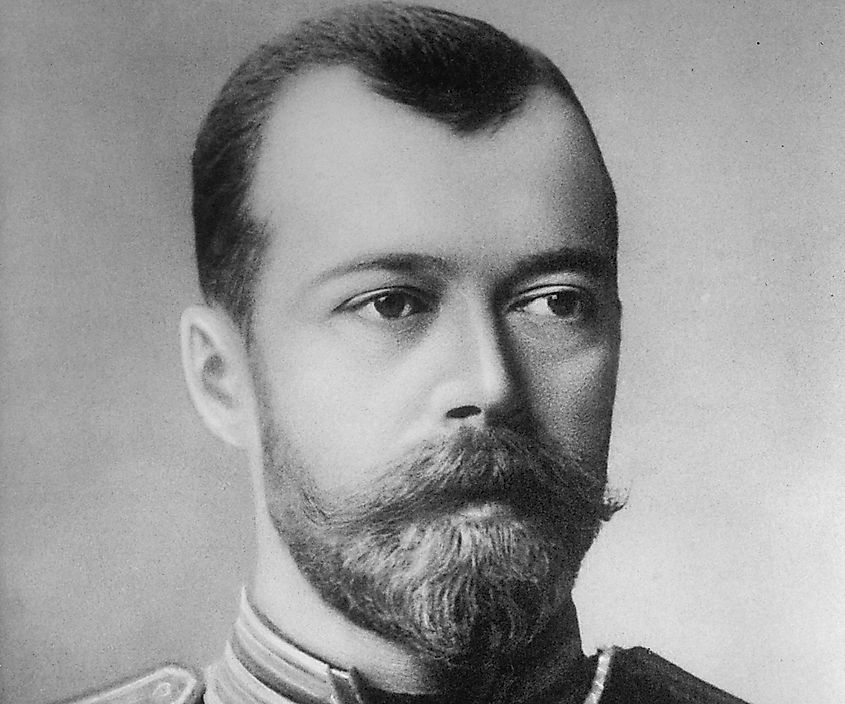
The last monarch of Russia, the life and death of Tsar Nicholas II has been almost mythologized in the century since his grizzly murder. Many focus on his death and its aftermath but rarely does the true character of the Tsar get the same light of day.
Nicholas, for the most part, was someone who was known for being quite timid and indecisive. For much of his childhood was surrounded by close confidants of the royal family who bent to his every whim and rarely pointed out his flaws.
His recluse nature made keep his advisory circle incredibly small and had little time to hear the opinions of outsiders. This led to Nicholas putting a ton of faith in advisors who fed him misinformation or half-truths about the state of the average Russian citizen.
His rule since 1895 had been marked with discontent and whispers of revolution years before the First World War ever took place. Nicholas famously crushed a communist insurrection early on in his reign. Both Vladimir Lenin and Leon Trotsky would be arrested and exiled to Siberia during this time. While public opinion of Nicholas was never great it would be WWI and the fallout that came with it that would be the final nail in the coffin for him and the Romanov Dynasty.
As soon as the war started the Russian military ran into serious setbacks. The Germans and Austro-Hungarians had little to no issue stopping their poorly coordinated attacks, and much of the territory they gained was done so with an incredibly high casualty rate. Supply lines were terrible and large swathes of the military would go into battle with poor equipment and empty stomachs.
In a move that was heavily advised against by his generals, Tsar Nicholas left the safety of Moscow and placed himself in direct control of the army. Nicholas has little to no military training and was totally out of his depth on the front. While it is agreed upon by historians that he did not overrule any decisions that were made by his general staff directly, his absence in Moscow left the perfect opening for revolutionaries to take control.
In 1917 a large revolt took place in St Petersburg. The local government tried to quell the unrest but was powerless to stop it. The rest of the government soon resigned and called on Nicholas to abdicate the throne. Nicholas did so a few months later and was detained by the communists and had plans to live in exile in England.
However, these plans would never materialize. In 1918, Nicholas along with his family was sent to Yekaterinburg. A small town in the Ural Mountains. As the Russian Civil War raged around them, pro-monarchy forces attempted to rescue the royals. With enemy forces closing in the Bolsheviks rounded up Nicholas, his wife, children, servants, and even pet dogs and killed them all in a basement at the edge of town. The Romanov Dynasty was dead and a new communist regime would rule Russia for much of the 20th century.
Ricimir (456 AD - 472 AD)
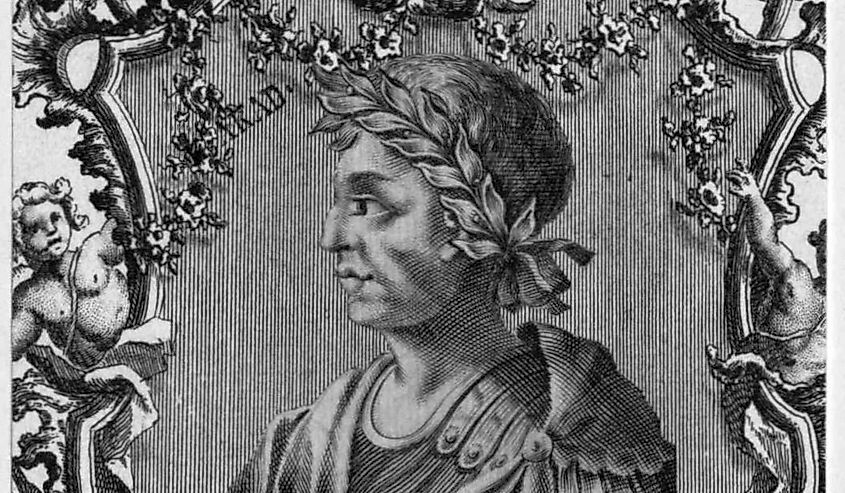
Ricimer had humble beginnings as the son of a Suiebian chieftain in the late years of Antiquity. Like many other Germanic tribes at the time, Ricimer and his people had been uprooted from their traditional lands and were finding a new place to settle within the Roman Empire.
By the time Ricimer first involved himself with the Romans, the empire was already heading toward disaster. The economy was in ruins, the military was largely made up of unreliable and disloyal mercenaries, and corruption was rampant in just about every position of government.
As an outsider, Ricimer quickly climbed the ladder of Roman society by befriending the future emperor of the Western Roman Empire, Majorian. Both Ricimer and Majorian worked together on a military campaign in southern Italy to push back a Vandal invasion that was being launched out of North Africa.
The Romans were so impressed by Ricimer that they appointed him as Magister Militum (master of soldiers) which essentially gave him total control of the Roman military and its legions. Upon his new promotion, Ricimer used his newfound power to depose the Western Roman Emperor Avitus and elevated his friend Majorian to the position instead.
Ricimer had planned to use his control over the military to dictate who sat on the throne. He assumed that whoever he placed as emperor would be nothing more than a puppet that could be used for his interest. However, this was not the case with Majorian.
Majorian turned out to be a more than capable emperor. Despite the empire being on the verge of total collapse Majorian assembled the legions and immediately began to reconquer lost territory and subdue hostile Germanic tribes that had settled within its borders.
With shocking speed, Majorian was able to take back much of Southern France and the entirety of Spain. It was only when he tried to invade the Vandal Kingdom in North Africa did his campaign ran out of momentum. After the failed invasion, Majorian decided to return to Italy to regroup.
Stunned by the competence and ability of Majorian, Ricimer knew that he had not installed the mindless puppet he had hoped. In an attempt to maintain his power, Ricimer had Majorian arrested and executed in 461 AD. With Majorian dead, Ricimir was much more careful in his selection of puppet rulers. The next string of emperors would turn out to be nothing more than a mouthpiece of Ricimer. By the time Ricimer died in 472 AD, the damage that he had incurred on the empire was irreparable.
While no one can know for sure if the Western Roman Empire would have collapsed regardless of the interference caused by Ricimer, it is certain that the assassination of Majorian and the installment of weak and powerless puppet emperors all but sealed the fate of the Romans.
Emperor Franz Joseph I (1848 - 1916)
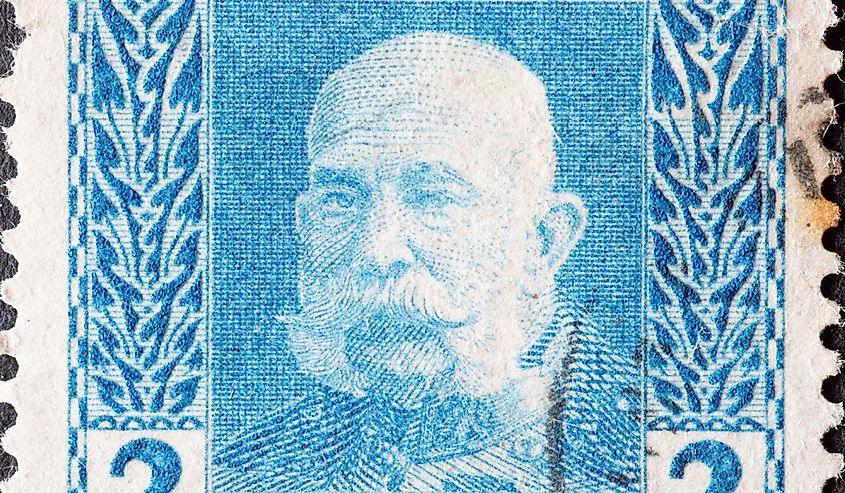
Franz Joseph, I is largely remembered today as being the emperor who plunged Europe and most of the globe into the First World War. Not only did his brash and reckless behavior lead to one of the most devasting wars in human history, but his incompetence and poor leadership would also obliterate his empire and pave the way for decades of sectarian violence and border disputes.
It is easy to see with the benefit of more than a century of hindsight that the Austiro-Hungarian Empire was doomed to fail and that any kind of intervention to save it would have been in vain. Austria-Hungary was being torn apart at the seams by the growing nationalism of the dozens of ethnic groups living within its borders well before Franz Joseph I ascended the throne in 1848. However, it is quite clear that Joseph did not take the seriousness of the situation into mind. His inability to tend to the various needs and wants of the countless ethnic groups in his empire only accelerated the dissolution of Austria-Hungary.
His dealings with Serbia in 1914 after the assassination of Archduke Franz Ferdinand is undoubtedly his greatest failure as a leader. He knowingly provoked the small nation into war after issuing the Serbians an ultimatum that he knew they could not meet.
Once Austria-Hungary declared war it set off a chain reaction of treaties and alliances that soon led to the entire European continent being engulfed in a disastrous war that led to the deaths of more than 17 million people.
Even though he had started the war, Joseph and his military were one of the most inept and ineffective in the entire war. His forces were poorly equipt and led by a group of generals who were given positions based on social standing and connections rather than merit. Then even struggled to occupy Serbia, a nation with a fraction of its population at the time. It was only with direct German aid did they finally subdue them.
Joseph would die at the old age of 86 in 1916 but his death would do little in reversing his decisions a few years prior. Austira-Hungary would be completely dismantled after coming out on the losing end of WWI in 1918.
Europe would be changed forever and despite the unbelievable carnage and bloodshed that was witnessed, WWI would only set the stage for a much more horrific conflict only 21 years later.
Summary
Bad leaders come in all shapes and sizes. Mass killings and genocide are certainly good markers for an evil leader but a poor leader does not always need to be at the same level as Pol Pot or Joseph Stalin to be considered bad.
History is full of heads of state that were either way in over their heads or could simply not be bothered with the unique problems that their nations were dealing with. Perhaps through the study of history, we can spot similar patterns with our leaders in hopes of avoiding the same kinds of tragedies and mishaps in the future.
